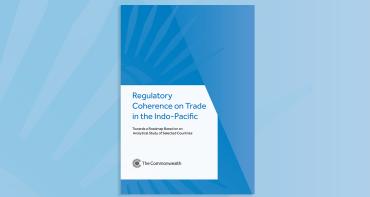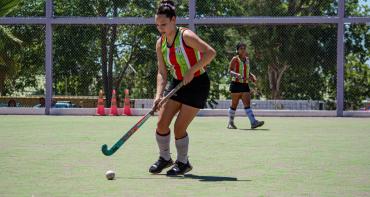Speaker: Commonwealth Secretary-General Kamalesh Sharma
Your excellencies, honourable ministers of education, senior officials and representatives of ministries of education, colleagues, ladies and gentlemen, good morning.
Let me bid you a very warm welcome to Marlborough House, headquarters of the Commonwealth. We are very pleased to have you with us, and we trust that you have been able to find some time to rest following your travel, and in preparation for the important task that lies ahead of you today. This does not, of course, apply to the Chair, who has come straight from the airport, to whom I extend our collective deep appreciation and bid him particular welcome.
I wish to express my personal thanks to you all for generously setting aside time in your busy schedules to serve on this Ministerial Working Group, developing recommendations on collective Commonwealth priorities for education in the Post-2015 Development Framework.
The current Internationally Agreed Goals, known as the Millennium Development Goals and the Education for All goals, were agreed through a top-down process which presented a number of implementation and achievement challenges at national levels.
In preparing for the successors to those goals, the UN has embarked on a consultative and participatory process. There is worldwide consultation in almost every country, at multiple levels, and in regional forums.
Encompassing, as we do, a third of the world’s population, the Commonwealth is perhaps uniquely placed to contribute to the process, and to submit recommendations on behalf of our citizens. This is a prime opportunity for us to exercise, on behalf of our member countries and our citizens, the collective advocacy role for which the Commonwealth is so well equipped, and that it is so well placed to deliver.
Commonwealth ministers of education at the 18th Conference of Commonwealth Education Ministers recognised the importance of bringing this Commonwealth perspective to bear on the post-2015 development agenda. It is a fine example of the convening power of the Commonwealth, and of the ability of our members to chart a way forward for the benefit not only of our own citizens, but for the greater global good.
Your commitment to that greater good and the importance you attach to this initiative is evident from your readiness to grasp this opportunity for global advocacy by presenting Commonwealth recommendations at the highest level.
We at the Secretariat are pleased to have been able to facilitate this process. Later today you have the opportunity of presenting the outcomes of your deliberations to a representative of the UN High Level Panel of Eminent Persons on the Post-2015 Development Agenda.
We will shortly receive a report from the chair of yesterday’s Senior Officials Meeting on the preparatory work that was undertaken. I understand that the meeting involved an admirably high level of debate and discussion and laid the groundwork for agreement on a practical and ambitious set of recommendations based on the principles of access, equity and quality. In bringing the collective influence of the Commonwealth to bear on the post-2015 goals; how the goals are to be achieved will be as important as what the goals are.
Alongside the engagement of this Group, which will inform the work of the UN High Level Panel, the Commonwealth Secretariat is also working closely with UNESCO as it considers how to proceed with the Education for All goals post-2015. Last month we participated in the first global Education for All meeting, which took place in Paris. As well as considering key steps in the Education for All process leading up to 2015, that meeting received with interest our report on this Commonwealth Ministerial Working Group, and the process of consultation that has been undertaken in preparation for your meeting today. Participants in the meeting made it clear that they look forward to receiving a full report on the outcome of your deliberations.
Of the current Millennium Development Goals, in addition to the two which speak directly to education, each of the other six also depends on education if it is to be achieved. Hence, as ministers of education and education officials, I need not remind you of the central and catalytic role that education plays in achieving political, economic, environmental and social development.
Earlier this year, at the opening of the Conference of Commonwealth Education Ministers in Mauritius, Prime Minister Kenny Anthony reminded us of the wise words of his fellow St Lucian, the Nobel laureate economist Sir Arthur Lewis, that ‘the cure for poverty is not money but education’. That is why, in striving to reduce poverty and advance development, education must remain central to all our thinking for the post-2015 development agenda.
To complement and support our work, we have established Commonwealth Connects, a cloud-based web platform providing online workspaces for communities of practice; specialist groups of ministers, officials and professionals; and where other collaborating partners can transact and communicate. Some of you have already used it, since it was one of the means used for the consultation process and preparation of documents ahead of this meeting. We hope many of the groups in the field of learning can coalesce through Commonwealth Connects to form a Commonwealth Education Hub.
Excellencies, hon ministers, ladies and gentlemen, none of us can have any doubts about the importance of this Working Group, not only for the Commonwealth but for the wider global discourse on development in general and education in particular. On behalf of all the millions who stand to benefit from your diligence, your imagination, and your commitment to making our Commonwealth voice heard in the post-2015 development agenda, I wish you all the most fruitful meeting, and I offer you the most heartfelt thanks for your continuing commitment.



